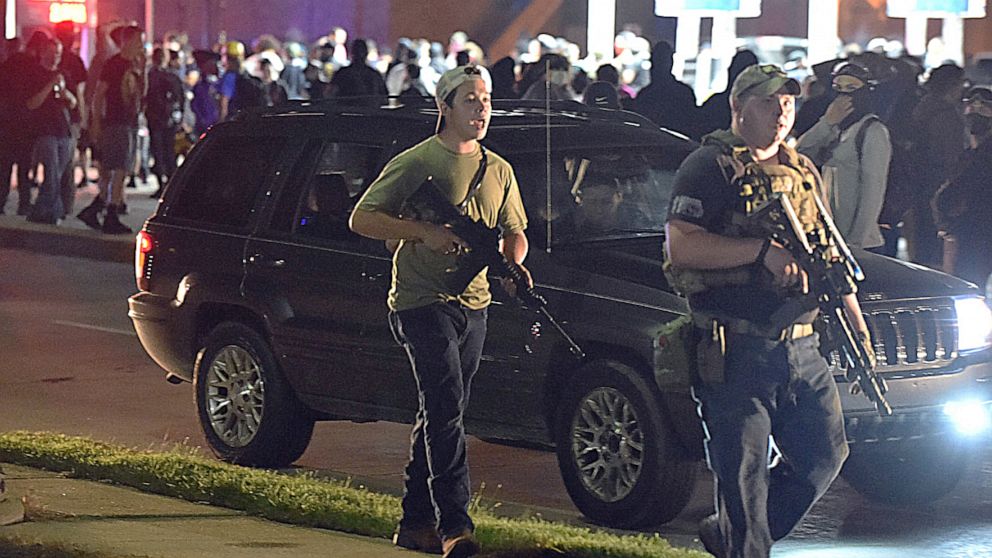Demonstrations against Kyle Rittenhouse verdict seen across country.
The verdicts in favor of Kyle Rittenhouse and against the men accused of killing Ahmaud Arbery have shone a renewed spotlight on vigilantism and self-defense in America.
While in many respects dramatically different, including their outcomes -- Rittenhouse was acquitted and the defendants in the Arbery case were convicted of murder -- both high-profile cases center on people who were armed and put themselves into potentially dangerous situations, fatally shooting people in the process and asserting that they did so in self-defense.
“The verdict in [the Rittenhouse] trial gives a green light to people throughout the country who want to bring weapons to protests," said Rep.
Prosecutor Thomas Binger in the Wisconsin case argued in closing statements that Rittenhouse was part of a group of "chaos tourists" and "wannabe soldiers" with no personal connection to the area who were "trying to feed off of what we were going through" in the wake of Blake's shooting.
Binger also argued that Rittenhouse provoked the situation by bringing a weapon and pointing it at people, enabling him to "hide behind self-defense" and that he had a duty to "exhaust all reasonable means to avoid confrontation.".
But Rittenhouse, who had pleaded not guilty, and his defense team argued that he came there to offer medical aid, was not looking for trouble and that he did not intend to kill the people he shot -- only "stop" the threats he faced from the three men.
Rittenhouse had already shot and killed two people at the protests and Grosskreutz said he "thought the defendant was an active shooter," a characterization that prosecutors used as well.
Eric Ruben, a professor at Southern Methodist University Dedman School of Law, said that what was crucial for Rittenhouse is that "the time frame for considering self-defense is the time right around the confrontation.".
They argued in the case that they believed Arbery, who was out jogging, had burglarized a house and decided to follow him in their trucks, chasing him through the neighborhood for an extended period..
Intersection of race and self-defense in Arbery case
Laura Hogue, the defense attorney for Greg McMichael, argued that Arbery decided to "fight," running at Travis McMichael instead of retreating, and posing a physical threat to McMichael that justified McMichael's shooting him in alleged self-defense
